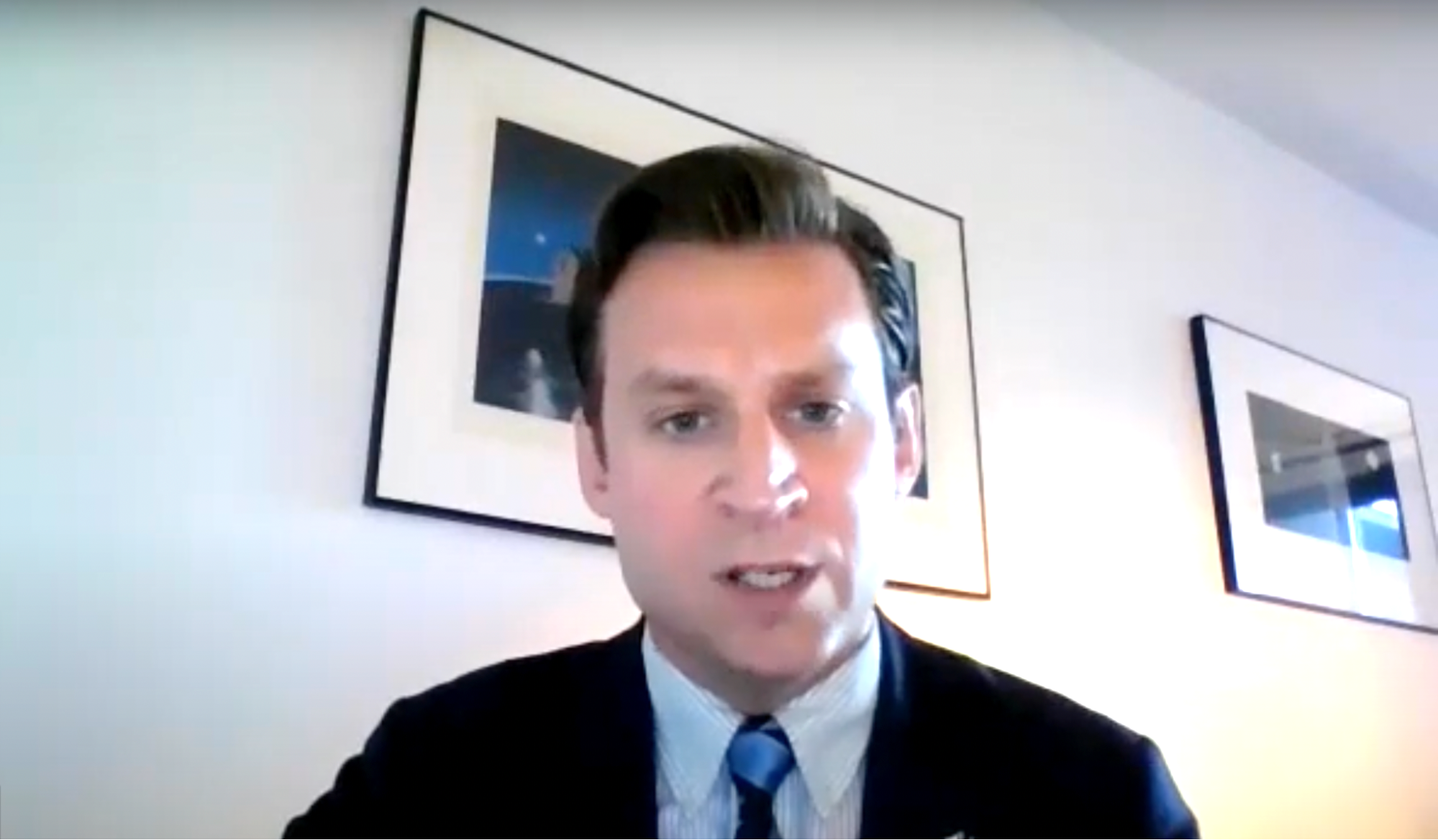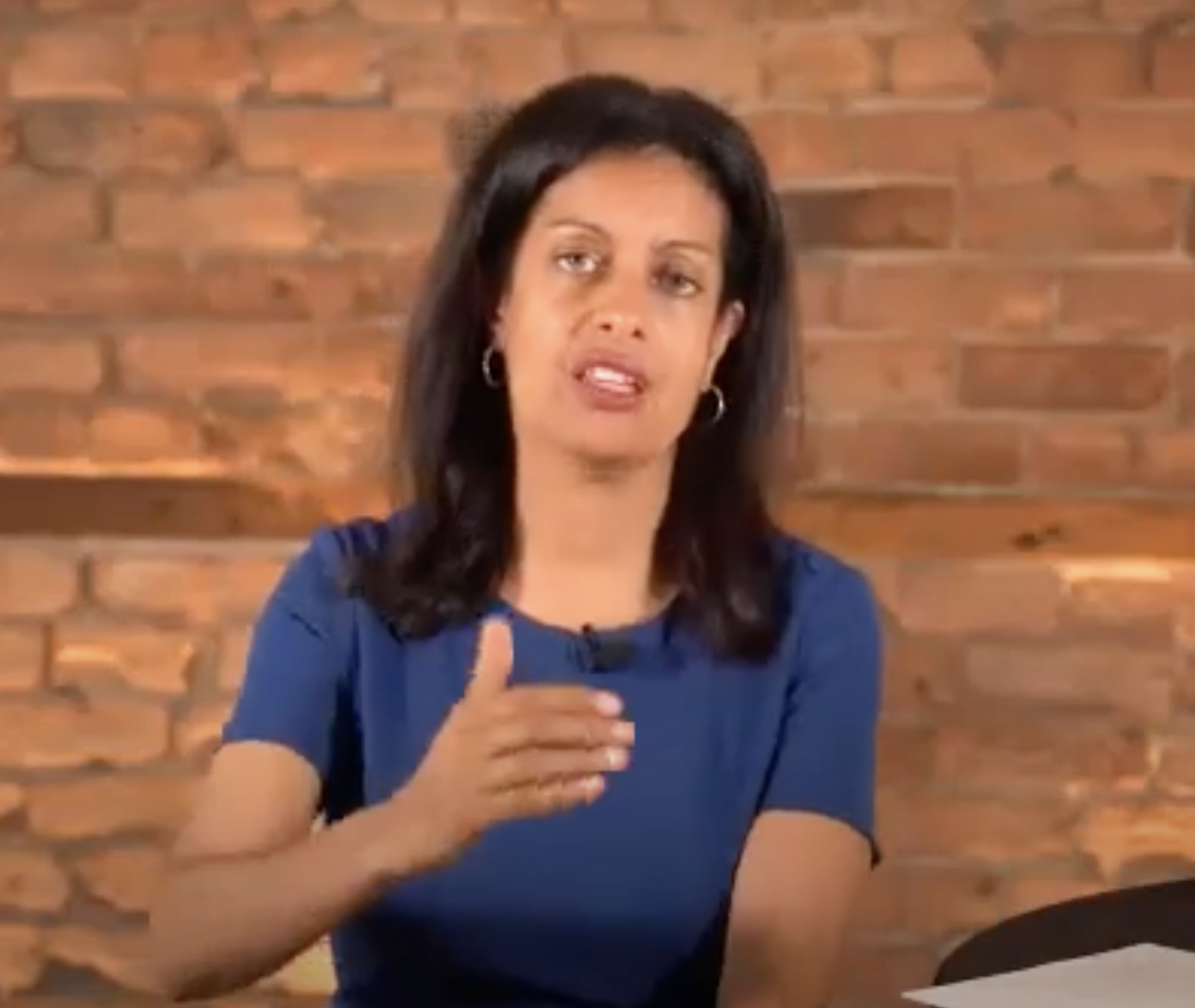Duhaime seeks Conservative beachhead in CAQ-held Chauveau Peter Black, Local Journalism Initiative reporter peterblack@qctonline.com If there is such a thing as a Conservative stronghold in the Quebec City region, the…
Tag Archives: 2022 Quebec election
Jean-Lesage battle: QS incumbent Zanetti in rematch with CAQ’s Gamache
Jean-Lesage battle: QS incumbent Zanetti in rematch with CAQ’s Gamache Peter Black, Local Journalism Initiative reporter peterblack@qctonline.com The riding of Jean- Lesage is named for the revered Liberal premier and…
Mobility a priority in Quebec and Lévis election shopping lists
Mobility a priority in Quebec and Lévis election shopping lists Peter Black, Local Journalism Initiative reporter peterblack@qctonline.com True to the long-standing tradition, the mayors of the two major cities in…
 Canadian Party of Quebec leader Colin Standish speaks at a virtual town hall organized by the Quebec Community Groups Network on Aug. 31. (Screenshot)
Canadian Party of Quebec leader Colin Standish speaks at a virtual town hall organized by the Quebec Community Groups Network on Aug. 31. (Screenshot) Canadian Party Leader Standish would repeal Bills 96, 21, 40
Canadian Party Leader Standish would repeal Bills 96, 21, 40 Ruby Pratka, Local Journalism Initiative reporter ruby@qctonline.com The Canadian Party of Quebec, a new federalist political party led by lawyer…
OPINION: No room for death threats in election campaign
OPINION: No room for death threats in election campaign What in the world is going on? This is Quebec, where anyone, including movie stars, presidents and local notables, can walk…
 Liberal leader Dominique Anglade speaks at a virtual town hall organized by the Quebec Community Groups Network on Aug. 23. (Screenshot)
Liberal leader Dominique Anglade speaks at a virtual town hall organized by the Quebec Community Groups Network on Aug. 23. (Screenshot) Anglade touts Liberal plan for English speakers, minorities
Anglade touts Liberal plan for English speakers, minorities Ruby Pratka, Local Journalism Initiative reporter ruby@qctonline.com Liberal leader Dominique Anglade discussed her party’s plans for the province at a virtual town…
QCGN interim president reflects on action-packed mandate
QCGN interim president reflects on action-packed mandate
Ruby Pratka, Local Journalism Initiative reporter
ruby@qctonline.com
After former Quebec Community Groups Network (QCGN) president Marlene Jennings stepped down earlier this year, longtime board member and former federal civil servant Eva Ludvig took over as interim president. The Quebec Chronicle-Telegraph (QCT) caught up with Ludvig to discuss her vision for the organization and the upcoming Quebec election. The following interview has been edited and condensed.
QCT: You took over the leadership of the QCGN at an action-packed time, with Bill 96, the upcoming election and the new census data among other things. What have the last few months been like for you?
Eva Ludvig: Nonstop! I’ve spent a lot of time trying to explain that you can interpret [census data] in many different ways, and certain numbers are being used by nationalist media to create … the fear of Quebec becoming Louisiana. I’ve also been pointing out that growth comes from immigration. There are now 8.5 million people in Quebec – there were 8.1. Those 400,000 didn’t come from us having babies. They came from immigration and mobility [within Canada].
QCT: A few years ago, as you know, several regional organizations, including Voice of English-speaking Québec (VEQ), left QCGN to form the Regional Development Network. Do you think QCGN is still an effective voice for English speakers in the regions?
EL: I was on the board of directors when this happened and I was very sad to see it because I think unity is important. However, QCGN took the opportunity to learn from this. We have the Regional Association of West Quebecers and the Coasters Association [on the Lower North Shore] which are regional organizations much like VEQ doing community development, and we see our role as supporting them. We feel that we serve all of the English- speaking community, whether they are members or not. Any members who have left, including VEQ, are welcome to come back. We’ll also be introducing individual membership, most likely next year.
QCT: What are your priorities for the upcoming election?
EL: We are nonpartisan – we are not telling anyone who to vote for. We think it’s important for everyone to know the issues and what the parties stand for, and then vote. I know many people have said, ‘What’s the point? The CAQ is going to win.’ Every single vote can make a difference.
QCT: In light of the campaign, what do you want the parties to understand about English speakers’ concerns?
EL: It’s difficult because there are so many issues. It’s not that all we care about is language. We care about everything that all Quebecers care about. We’ve organized virtual town halls with party leaders and sent questionnaires to each party, and we are going to make [their answers] public.
QCT: How important would you say this election is for the English-speaking community compared to past years?
EL: I think it’s critical, because in the past 20 years, we had language peace. We thought this was all behind us. We believe [Bill 96] was done for political reasons, because there was nothing on the ground to indicate there were problems. We think stirring up these issues and creating division within society is harmful to all Quebecers. There’s also Bill 21 [on religious symbols] and Bill 40, which [affects] the management of our school system. By creating all this, the CAQ has brought us together – cultural communities, religious groups, minority groups, English speak- ers, immigrants – and [given us] strength. I think that was a mistake on their part. The more we are, the stronger we are, and I’m hoping we will all give a very strong message to this government.
QCT: The QCT is a bit unique in that a lot of our readers are francophones. What would you like our French-speaking readers to understand about how the English community is approaching this election?
EL: Our francophone neighbours should know that we are troubled. We are insulted by [the idea that] the English- speaking community is at fault for any perceived decline in French. We understand the importance of French, and we know it needs support. We believe Bill 96 is not the right tool. It is a punitive bill towards the English-speaking community and it does nothing to support French. This government is practising divisive politics, and that’s not good for anyone. The other thing is how important our Charters of Rights and Freedoms are – this government is treating them like a piece of paper by invoking the notwithstanding clause preemptively [on Bills 21 and 96]. It’s a threat to our democratic system, and I think that’s important to all of us.
OPEN LETTER: Upcoming election crucial for English-speaking community
OPEN LETTER: Upcoming election crucial for English-speaking community
Submitted by the Quebec Community Groups Network
Quebecers go to the polls Oct. 3. This is a pivotal election, and the Quebec Community Groups Network (QCGN) is determined to ensure that the concerns of Quebec’s English-speaking community are voiced and addressed.
The past four years have proven challenging for our community, as the govern- ment adopted several laws that do not reflect our vision of an inclusive, modern Quebec. Law 40 ignored our constitutional right to manage and control our schools. By pre-emptively overriding both the Quebec and Canadian Charters of Rights and Freedoms with Law 21 and Law 96, the incumbent government turned its back on a proud tradition of protecting human rights and ignored international human rights standards to which Quebec had bound itself. As a result of Law 96, new limits have been imposed on our access to education, to health and social services, to the courts, and also to government services and information in English. We also strenuously object to the Coalition Avenir Québec’s restrictive definition of who is a historic anglophone.
Election campaigns provide opportunities for voters to question political parties and their candidates on their policies and pro- grams. The QCGN intends to act as a catalyst for such discussion.
Starting this week, we are issuing a series of questions – framed under themes – for political party leaders to address. This week’s theme is rights and access to justice. Our questions cover a wide range of issues, from the appointment process for judges to the pre-emptive use of the notwithstanding clause. Subsequent themes will include education, access to health and social services, support for our community including funding to ensure access to government services in English, and finally business and the economy. We will share the questions and answers on the elections page of our website and on social media.
Our queries for the party leaders were developed in consultation with a broad cross-section of English- speaking Quebecers. Three main questions emerged:
If elected, will you support Law 21 in whole or in part?
If elected, will you support Law 96 in whole or in part?
If elected, how will your party support and recognize the rights of English-speak- ing Quebecers?
We are disappointed that no English-language debate will take place during this campaign. It is important for our community to hear directly from our leaders. We have invited the party leaders to participate in virtual town halls with members of our community. So far, Liberal leader Dominique Anglade, Conservative leader Éric Duhaime and Canadian Party of Quebec leader Colin Standish have accepted our invitation. Stay tuned for dates and times.
Our goal over the coming weeks is to ensure that our community is well informed. The next step will be getting people out to vote.
English-speaking Quebecers constitute an important voting bloc in this province. This is the time to mobilize. We encourage all English-speaking Quebecers to get involved, to attend all- candidates meetings and to ask questions about issues critical to our community and our future – and most importantly, to listen to the answers.
Remain informed and up to date by consulting QCGN’s elections page at qcgn.ca/2022-provincial-elections.
Outside Quebec? Get your absentee ballot by Sept. 14 and vote
Outside Quebec? Get your absentee ballot by Sept. 14 and vote Adapted from a press release by QCT staff The provincial general election is approaching quickly. Voters who will be…
